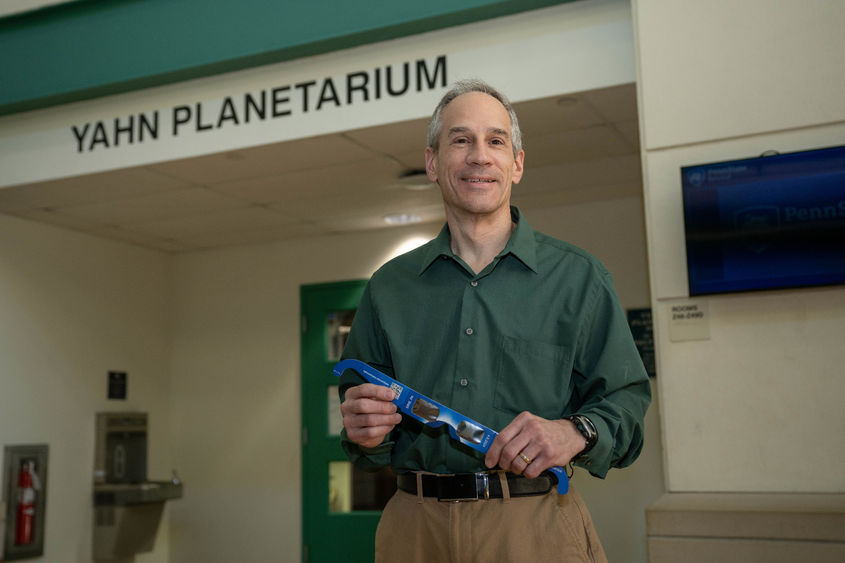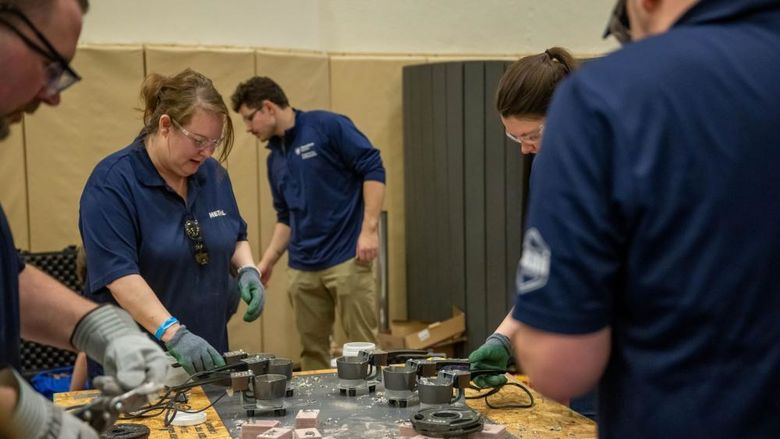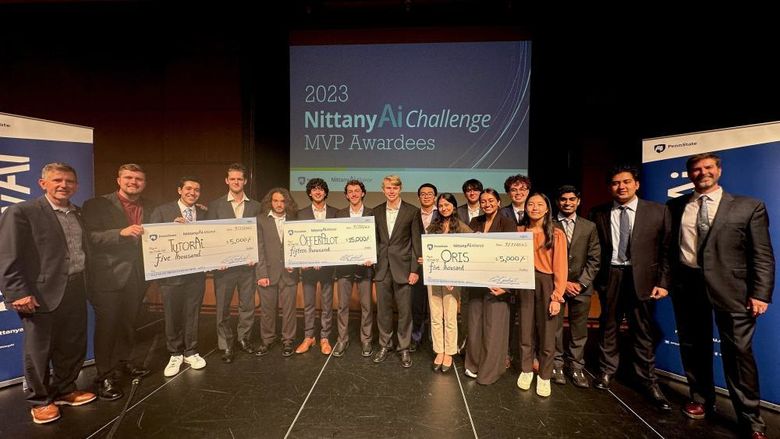
Jim Gavio, director of the Yahn Planetarium at Penn State Behrend, holds a pair of eclipse glasses. The planetarium will distribute one free pair of glasses to everyone who purchases a ticket to a planetarium show, while supplies last, between now and the April 8 eclipse.
ERIE, Pa. — A new show at Penn State Behrend’s Yahn Planetarium explains the science behind the April 8 total solar eclipse, which will pass over Erie in its “path of totality.” The show, which was produced by Rice University and the Houston Museum of Natural Science, includes animations and time-lapse footage of a 2017 eclipse in Texas.
“The program explains why total eclipses happen, why they are as rare as they are, and why it’s so special that this will be happening over our heads in April,” said Jim Gavio, director of the Yahn Planetarium.
The program will be offered at 11:30 a.m. most Saturdays until April 8. A separate, youth-focused program, “Larry Cat in Space,” begins at 10 a.m.
For a full schedule of programs, including weeks with altered show times, visit the Yahn Planetarium webpage.
To help people in Erie view the April 8 eclipse safely, the Yahn Planetarium will distribute free eclipse glasses — one pair for every paid admission, while supplies last — to guests who attend a planetarium show between now and April 8.
Penn State Behrend also will provide 50,000 pairs of eclipse glasses — enough for every K-12 student in Erie, Crawford and Warren counties — to public, parochial and home-schooled youth. The glasses, which will be distributed through the Northwest Tri-County Intermediate Unit 5, were purchased with funding from Greg Yahn, a member of the Council of Fellows at Behrend, and John and Louise Mangus, of Warren County. John Mangus worked at NASA’s Goddard Space Flight Center for nearly 30 years, supporting the James Webb and Hubble space telescopes.
“As a leader in science, we want every child to be safe during the eclipse,” said Tracy Halmi, an associate teaching professor of chemistry and the science outreach coordinator at Behrend. “By sending one pair of eclipse glasses to every K-12 household, we’re enabling every member of that household to share and view the eclipse safely.”
Behrend will host a public viewing of the April 8 eclipse, with a plenary lecture by Darren Williams, professor of astronomy and astrophysics.
In Erie, the eclipse will begin at 2:02 p.m., according to NASA. Totality will begin at 3:16 p.m. and will continue until 3:20 p.m.
“This phenomenon is extremely rare,” Halmi said. “Students in our region will be able to learn about the eclipse in school and then experience the event from their own backyard.”
To learn more about the eclipse and related programming at Behrend, visit the School of Science eclipse page.
Robb Frederick
Director of Strategic Communications, Penn State Behrend





